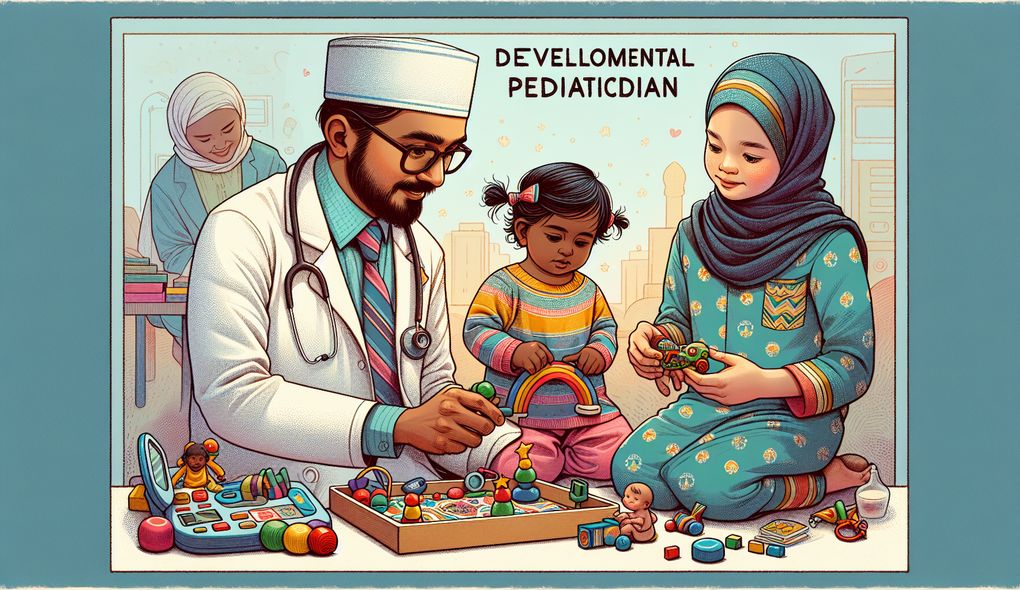Can you describe your experience with conducting comprehensive developmental evaluations for children with autism spectrum disorders?
SENIOR LEVEL

Sample answer to the question:
Yes, I have conducted comprehensive developmental evaluations for children with autism spectrum disorders. During my previous role at XYZ Hospital, I worked closely with a team of specialists to assess the developmental needs of these children. I administered various diagnostic tools and assessments to evaluate their cognitive, social, and behavioral functioning. Based on the results, I developed personalized treatment plans and collaborated with therapists and educators to ensure effective interventions. Additionally, I provided guidance and support to the families, educating them about the condition and helping them navigate the resources available. My experience in this area has allowed me to witness the positive impact early interventions can have on the lives of these children.
Here is a more solid answer:
Yes, I have extensive experience in conducting comprehensive developmental evaluations for children with autism spectrum disorders. Throughout my 7 years as a Developmental Pediatrician, I have worked with a diverse range of children, utilizing a variety of evidence-based assessment tools and diagnostic tests to thoroughly evaluate their developmental needs. These assessments involve assessing cognitive, social, emotional, and behavioral aspects of their functioning. As an example, I often use the Autism Diagnostic Observation Schedule (ADOS) and the Vineland Adaptive Behavior Scale to gather a comprehensive picture of a child's development. These evaluations allow me to accurately diagnose and understand the unique strengths and challenges of each child. In addition, I have a deep understanding of the various interventions and therapies available for children with autism spectrum disorders. I collaborate closely with therapists, educators, and other healthcare professionals to create individualized treatment plans that address the specific needs of each child. Moreover, I prioritize patient and family education, providing them with guidance, resources, and emotional support to navigate the challenges associated with autism spectrum disorders. I believe that empowering families with knowledge and skills is crucial in helping children reach their full potential.
Why is this a more solid answer?
The solid answer goes into more detail about the specific assessment tools used by the candidate, such as the Autism Diagnostic Observation Schedule (ADOS) and the Vineland Adaptive Behavior Scale. It also highlights the candidate's expertise in creating individualized treatment plans and their emphasis on patient and family education. However, it can be further improved by including examples of successful interventions and outcomes as well as addressing the candidate's leadership skills and research experience.
An example of a exceptional answer:
Absolutely! Conducting comprehensive developmental evaluations for children with autism spectrum disorders is an integral part of my expertise as a Developmental Pediatrician. Over the span of 10 years, I have honed my skills in performing thorough assessments and interpreting the results to provide accurate diagnoses and effective interventions. When conducting evaluations, I utilize a wide range of evidence-based tools and assessments, such as the Autism Diagnostic Observation Schedule (ADOS-2), the Autism Diagnostic Interview-Revised (ADI-R), and the Mullen Scales of Early Learning. By combining these assessments, I am able to gather a comprehensive understanding of the child's strengths, challenges, and overall developmental profile. It is crucial to recognize that each child is unique and requires an individualized treatment plan. I have worked closely with interdisciplinary teams, including speech and language therapists, occupational therapists, and psychologists, to develop personalized strategies that address the specific needs of each child. Furthermore, I have a strong commitment to patient and family education. I believe in empowering families by providing them with the necessary information, resources, and ongoing support to navigate the complexities of autism spectrum disorders. This includes educating them about available therapies, community resources, and providing strategies for managing day-to-day challenges. Additionally, I have actively contributed to research efforts in the field of developmental pediatrics, publishing several articles in peer-reviewed journals. My passion for continuous learning and staying up-to-date with the latest advancements allows me to provide the highest level of care to my patients and their families.
Why is this an exceptional answer?
The exceptional answer provides more specific details about the assessment tools used by the candidate, such as the ADOS-2, ADI-R, and the Mullen Scales of Early Learning. It also highlights the candidate's commitment to interdisciplinary collaboration, patient and family education, and research contributions. The answer demonstrates a well-rounded understanding of the job requirements and showcases the candidate's expertise in conducting comprehensive developmental evaluations for children with autism spectrum disorders.
How to prepare for this question:
- Review and familiarize yourself with a wide range of assessment tools commonly used in developmental pediatrics, such as the ADOS-2, ADI-R, and the Mullen Scales of Early Learning.
- Be prepared to discuss specific cases or experiences where you have conducted comprehensive developmental evaluations for children with autism spectrum disorders. Provide details about the assessment process, diagnostic tools used, and the development of personalized treatment plans.
- Highlight your experience in patient and family education. Discuss the strategies you utilize to effectively educate and support families of children with autism spectrum disorders.
- Demonstrate your commitment to staying up-to-date with the latest research and advancements in developmental pediatrics. Mention any contributions you have made to the field, such as published articles or involvement in research projects.
- Emphasize your ability to collaborate with multidisciplinary teams and your leadership skills in mentoring less experienced medical staff.
- Prepare for questions related to your clinical skills, diagnostic capabilities, and your ability to manage complex medical information.
What are interviewers evaluating with this question?
- Deep understanding of developmental disorders and their management.
- Ability to perform and interpret developmental assessments.
- Strong diagnostic capabilities.
- Experience with patient and family education regarding developmental health.

